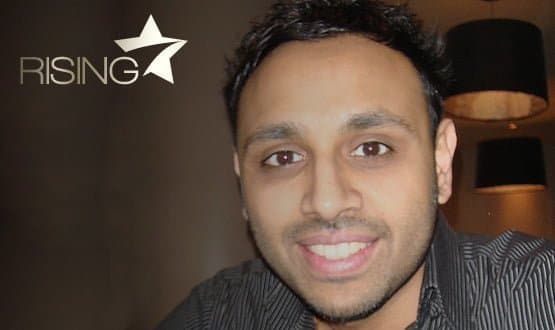Describing himself as a “jack of all trades”, 31 year-old Kapil Mepani has gained three promotions in the four years he has worked for Guy’s and St Thomas’ NHS Foundation Trust.
He is now a team leader on the IT service desk and is very proud of his team and the work that it does. “The really good thing about the role is that every day is different to the next,” he says.
“On average, we get between 350 and 550 calls a day and we support more than 800 applications. So it’s a very fast paced environment and I’m always doing different things.”
From Carphone Warehouse to the NHS
Mepani graduated in the middle of the 2009 recession. Despite this, it didn’t take him long to land a job. Having studied computer science at university, he was quickly hired on the service desk at Carphone Warehouse.
He then applied for an IT service desk job at Guy’s and St Thomas’, where he beat several hundred applicants in the race to get the post; while also getting another attractive offer.
“There were over 400 applicants for that job, and I was lucky to get down to the shortlist and to then get the job. I was at a bit of a crossroads at the time, as I also got offered a job for quite a big company in finance IT,” he says.
“The finance IT job was more financially rewarding, but I decided the NHS would be a bit more safe. I’ve definitely made the right decision.”
Aiming for three stars
The IT desk operates at a 90% customer satisfaction rate and is one of two NHS IT service desks in the country to be accredited by the Service Desk Institute, the national body for IT services support in the UK.
“At the moment they’ve given us a rating of 2.5 stars, so for the next 12 months we’re doing a project to see if we can get three stars,” says Mepani.
Among other things, getting to three stars means will mean finding and retaining highly skilled people, which is not always easy. “One of the biggest challenges is recruiting into the service desk,” he says.
“We have a lot of expertise and one of the hard things is to find new people with the level of knowledge. We are also the talent pool for the rest of IT. If there are any vacancies in IT, they come to the service desk; but it’s hard for us to fill the gaps.”
Mepani has also led on up-skilling his team through targeted training on new applications, on developing its document and knowledge base, and on building a wiki through which people can contribute expertise and ideas.
Drop-in service desks
Mepani has enrolled in a management course, and his goal is to manage multiple service desks. “I’ve realised I’m quite good with people and know how to motivate people; it’s probably one of my strengths as a manager. I feel my future is within IT management,” he says.
The service desk is located a good five minute walk from St Thomas’ Hospital on the banks of the Thames, which Mepani thinks is too far. It is even further from Guy’s Hospital, near London’s Shard, and he and his team plan to do something about it.
“We’re away from our two main sites but we want to get closer to our customers so we’re looking to set up drop-in sites at the hospitals where they can just come in with their IT issues,” he says. “We’re looking to get that in place in the next six months and we came up with that idea ourselves.”
Where is the ‘on’ button?
Mepani’s role means he doesn’t get to spend as much time handling the phones, but he still gets to pick up a few calls once in a while.
“If we’re really busy I support the team on the phone, everyone should be able to pitch in,” he says, adding that more than 60% of fixes are done by first line support. “Password requests are the most common calls we get. We also get a lot of people calling about problems with PCs, printers, and application problems.”
But sometimes, he says, people will call up with problems such as not finding the “on” button on the computer. “The stupid requests make the job fun and we can have a light-hearted joke with people.
“Some people just aren’t IT literate and won’t understand simple things, and we need to make it a bit easier for them,” he says with a smile.
Helping patients
Mepani argues that the role of the desk can only grow. “Guy’s and St Thomas’ is heavily reliant on IT. The guys know what they do makes a huge difference,” he says. “We’re the crown jewels of the trust.”
Even so, he says the best bit about his job is knowing that it helps staff and so, eventually patients. “The most important thing is that we can make an active contribution to the patients. We don’t talk to the patients directly, but we do what we do because of them,” he says.
| Fact box | |
| Name: | Kapil Mepani |
| Age: | 31 |
| Describe yourself: | Jack of all trades |
| Why healthcare IT? | Fast paced, every day is different |
| IT service desk goal: | Getting global recognition |

Are you a “rising star” of NHS IT? Or do you know somebody who is? EHI is looking to talk to people who are at a relatively early stage in their careers who are set to shape the healthcare IT and information world of the future.
If you know somebody who should be profiled, who is happy to talk about their working lives, their favourite projects and ambitions, please contact EHI reporter Lis Evenstad.

